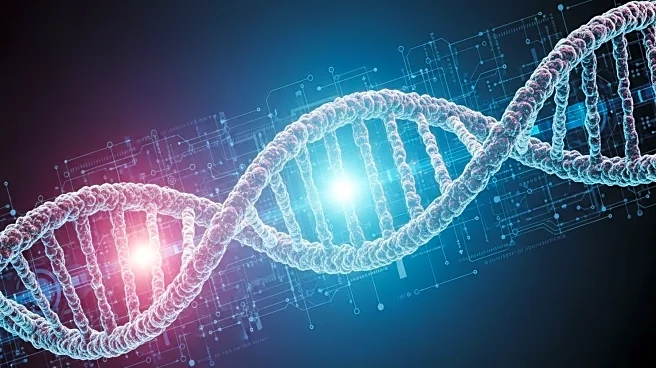What's Happening?
A team of researchers from the University of Vienna and Nankai University has developed a method to analyze aging signals in blood using advanced metabolomics and machine learning. The study, published in the Nature Journal npj Systems Biology and Applications, identifies aspartate as a key biomarker of physical fitness and maps interactions that support healthier aging. The research involved creating a Body Activity Index and a Metabolomics Index, which showed a strong correlation between physical fitness and molecular signatures in blood. Machine learning models were used to distinguish active from less-active individuals, with aspartate emerging as a significant predictor of activity level.
Why It's Important?
This research highlights the potential for using blood tests to assess aging and physical fitness, offering insights into how lifestyle choices impact health. The findings suggest that physical activity not only improves mobility but also has molecular benefits that could protect against cognitive decline and diseases like Alzheimer's. By understanding these molecular processes, healthcare providers could develop more targeted interventions to promote healthy aging, potentially reducing healthcare costs and improving quality of life for the elderly.
What's Next?
The study opens avenues for further research into the molecular mechanisms of aging and the development of diagnostic tools based on blood biomarkers. Researchers may explore how these findings can be applied in clinical settings to monitor aging and guide lifestyle recommendations. Additionally, the integration of AI in healthcare could lead to more personalized medicine approaches, enhancing preventive care and treatment strategies.
Beyond the Headlines
The ethical implications of using AI and blood tests to monitor aging could raise concerns about privacy and data security. As these technologies advance, it will be crucial to establish guidelines to protect patient information and ensure equitable access to these innovations. Furthermore, the cultural perception of aging and fitness may shift as scientific understanding deepens, potentially influencing public health policies and societal attitudes towards aging.









